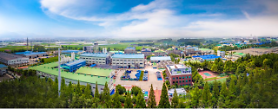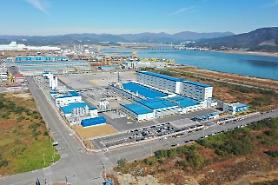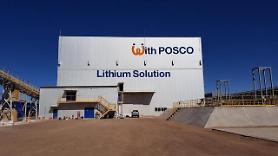
[Gettyimages Bank]
POSCO Chemical said it would jack up its investment in the synthetic graphite anode material plant in the southeastern industrial port of Pohang from 217.7 billion won ($167.3 million) to 345.8 billion won. As a result, the plant's annual production capacity would go up to 18,000 tons. There will be more investment in the plant to boost its production to 152,000 tons by 2030.
Lithium-ion batteries work by passing lithium ions between a graphite anode and a lithium cobalt oxide cathode. Anodes play an important role in a high-capacity battery. The more ions the anode can hold, the higher its energy capacity. Graphite is widely used for its relatively low cost, abundance, high energy density, and long life cycle.
Compared to natural graphite, synthetic graphite has a stable crystal structure to enhance the performance of batteries and is advantageous for fast charging. Synthetic graphite production has been led by Chinese and Japanese companies. POSCO Chemical, the only producer of battery-grade graphite in South Korea, completed a plant capable of producing 8,000 tons of synthetic graphite anode materials per year in December 2021.
POSCO Chemical receives needle coke, a raw material for synthetic graphite, from its subsidiary. Needle coke is an important material for graphite electrodes. The company runs a special research center in Pohang to develop high-capacity anode and cathode products. In November 2021, POSCO Chemical acquired a 15 percent stake in Inner Mongolia Sinuo New Material Technology, the Chinese producer of synthetic graphite anode materials.
South Korean companies strive hard to gain a competitive edge in a global battery war by releasing efficient next-generation products with affordable manufacturing costs, such as all-solid-state batteries which are seen as a next-generation power source for electric vehicles. Solid electrolytes are nonflammable and more stable. They can have a higher energy density than lithium-ion batteries.
Lithium metal batteries could run longer and hold more energy than lithium-ion batteries, which work by passing lithium ions between a graphite anode and a lithium cobalt oxide cathode. Due to their large specific capacity and the lowest reduction potential of metallic lithium, researchers have tried to develop high-energy-density lithium metal batteries.
The steel group regards battery materials as its next growth engine. In May 2022, POSCO Holdings made a strategic equity investment in Taiwan's solid-state battery developer Prologium Technology to cooperate in the production of all-solid-state battery electrolytes. They will jointly develop cathode materials for solid solid-state batteries, silicon anode materials, and solid electrolytes and establish a global supply system.
In October 2022, POSCO Holdings opened a solid electrolyte factory capable of producing 24 tons per year in Yangsan, some 290 kilometers (180 miles) southeast of Seoul. The factory will be jointly run by POSCO Holdings and Jeong Kwang, a domestic solid electrolyte material manufacturer.
POSCO Holdings has revealed a new goal to produce 610,000 tons of cathode materials, 320,000 tons of anode materials, 300,000 tons of lithium and 22,000 tons of nickel annually by 2030. The steel group's holding company has also acquired 100 percent of Tera Technos, a domestic silicon anode startup with a high-temperature liquid production technology with excellent heat transfer. Commercial production is to begin in the first half of 2024.
Silicon is a promising anode material and shows higher energy density than graphite. Researchers and battery makers have tried to acquire technology for the production of a composite anode material with a low content of silicon.
Copyright ⓒ Aju Press All rights reserved.



